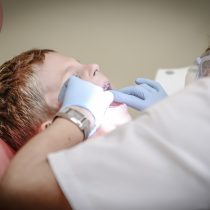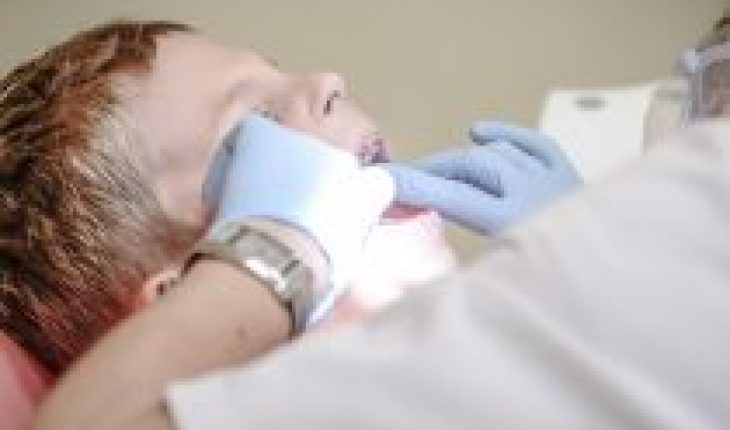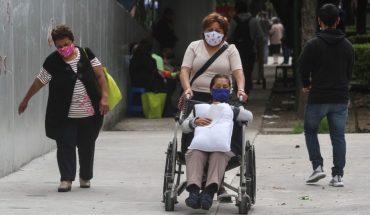
Smile is an important and influential part of everyone’s lives. The importance is given in the different aspects of life, from being able to eat, talk, laugh, to influencing the general state of health. Another important aspect is how it influences the development of self-esteem, interaction with others and mental health in general. Altered oral health affects people in a comprehensive way.
Then oral health is so important to our lives, what happens in Chile::
According to available national studies, at the age of 2 17.5% of children already have cavities, which increases to 49.6% at 4 years and reaches about 70% at 6 years. This increases with age, reaching 99.4% in adults aged 65 to 74. That is, between the ages of 65 and 74, 99% of people have cavities. This figure is dramatic.
The same studies also show that there is an important difference if we add the socioeconomic factor. De cavity-free children, i.e. healthy, focus on the high socio-economic level. Parents of children with oral health problems find their children’s smiles weighed. This is another factor that reflects the inequity in our country and the privilege of those who smile.
Gingival (gum) diseases also increase with age and these in conjunction with tooth decay directly influence tooth loss. Between the ages of 35 and 44, only 20% retain their full dentures, meaning that at least 80% have already lost a tooth. Only 1% of the population retains its complete dentures between the ages of 65 and 74.
By considering this data we can conclude that most people in Chile have one or more oral health problems, these problems increase as life progresses and they are accentuated by the average and low socioeconomic levels.
Why are we so sick?
Since the legal establishment of the dental profession in 1917, oral health policies have evolved. Public policies such as water and milk fluoridation at the national level; remembered fluoridations in schools with rinses and buckets; incorporation since 2000 into health objectives; incorporation into explicit health guarantees (dental urgency, integral oral health of pregnant women, comprehensive oral health of 6-year-olds, comprehensive oral health at age 60); program sowing smiles; ZERO program; dental care for 12-year-olds; 4th half-media programme; morbidity consultations; more smiles and scarce man resources; have been an important contribution to improving health.
All these programs, all these efforts, are very important and relevant. However, and understanding the social, cultural and economic context of our country, is that we have dental health care, which is by priority groups. In Chile, according to the CASEN 2017 survey, 78% of the population is affiliated with FONASA, 14.4% to Isapre, 2.8% to the Armed Forces and Order forces and 2% have no health forecast. In general, you might think that users affiliated with FONASA could use the public service to perform their dental care. However, not all of this population is guaranteed universal access to public dental services.
The lack of capacity to be able to serve at least the entire population affiliated with FONASA, means that all people who are not in a priority group, in general do not access dental services, or access when the disease has progressed and the possibilities to perform a treatment are: lose the tooth, access a waiting list, or go to a private service.
How long do you expect to smile again?
The latest figures from the Ministry of Health reveal that in Chile more than 287,000 people have been waiting for care for more than a year and 39 thousand have been waiting more than 3 years. The dental waiting list represents 25% of the waiting list of non-GES specialties and has increased by 48% in the last 7 years. According to an analysis by Fundación Sonrisas, the average wait for dental specialties in the public system is 17 months (511 days), while the wait for medical specialty care is less than 12 months (339 days).
Chile has a hard time smiling:
Considering the large number of oral problems presented by the inhabitants of our country, and all that this entails, it is important to consider this great debt that exists: many sick patients, with no option to be cared for in the public serviceblic or in private service – whether for territorial offer or economic capacity – day by day the ability to smile and thereby improve your self-esteem, develop individually and collectively, in all aspects of life. While our sick patients wait, what will we do about it?
It is then necessary to strengthen the public health system, increasing the infrastructure and physical resources for both primary and secondary care, in order to increase the number of general dentists and specialists who can meet the high demand of our patients. On the other hand, it is necessary to spread about strategies even unknown to Dentists, such as FONASA (Payment associated with a diagnosis) pediatric PAD.
It is also important to ensure that private services ensure attention that is really in line with quality/price, establishing alliances with this system if necessary. Regulation is important, since the health market, especially oral health, has left patients adrift, often the human sense has been lost and the bioethical foundations of our profession have been laid for patients, and why not to say so, moving on to taking professionals and health equipment through work precarization as well.
It is necessary, to rethink the model of oral health care, this is our task as Dentists, to be able to analyze the needs of our people, develop proposals and influence public and legislative policies. For this it is important that the College of Dentists has a real impact, being a nexus between the academic and technical world, other schools and organic in health, in order to propose proposals that are real improvements for all.
Finally, and perhaps the least addressed and most important pillar, is to establish a partnership with MINEDUC to establish within educational plans, health education, including oral health, that is delivered and promoted at all levels and that includes the entire educational community. Ensuring the entire educational community health education, specifically in oral health, will be a protective tool for all children, as well as helping teachers, and officials to be aware of their own health status, empowering and forming an active role in the promotion, prevention and even in detecting and stopping sick conditions in time. A community aware of its health, will be able to take care of it, increasing the protective factors and finally improving the quality of individual and collective life.
To ensure that smiling is not a privilege of a few and repaying the important debt to the oral health of our people, it is important to strengthen the health system as a whole, which allows greater access without economic discrimination and with multidisciplinary work in health and education.





